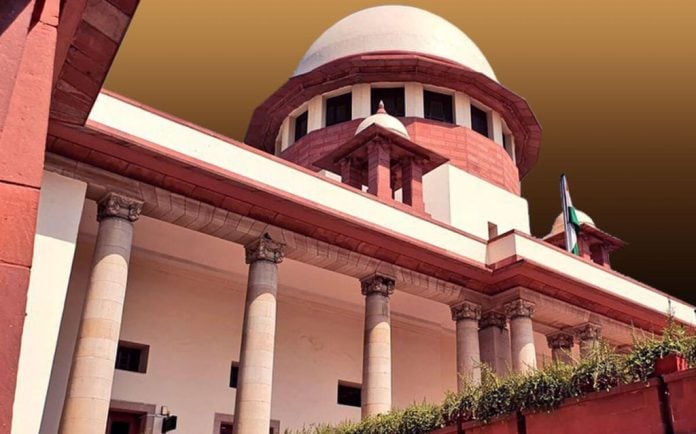Chief Justice of India (CJI) D.Y. Chandrachud announced on Thursday that the Supreme Court has introduced neutral citation for all of its judgments passed so far.
Making the announcement in the open court today, the CJI said the neutral citation would be for more than 30,000 verdicts delivered by the Apex Court, to be carried out in three phases.
As per the CJI, the first tranche, which includes judgments starting from 2014 till present, has already been completed. The second tranche would be from 1995 to 2013 and the third from 1950 to 1994, he added.
CJI Chandrachud further said that the Court was employing machine learning tools to translate its judgments from English to vernacular languages.
He said sometimes, literal translations could create difficulty. For example, “leave granted” may literally translate to “avakash prapt ho gaya”.
To overcome this problem, the Supreme Court has deployed a team of District Judges, Law Researchers and High Court judges to check that the machine learning translations were foolproof.
All expenses for this project would be borne by the Supreme Court, added the CJI.
He said so far, 2,900 Apex Court judgments have been translated, adding that the District Judges have also been asked to check the machine learning translations of the judgment.
The Supreme Court had constituted a three-member panel of High Court Judges in November, 2022, to develop and implement a uniform and unique citation for Apex Court judgments.
Delhi, Kerala High Court and Madras High Courts have already introduced neutral citation for its judgments.
Solicitor General Tushar Mehta said the E-SCR portal for judgment search was on par with SCC online.
Senior Advocate Maninder Singh sided with the SG and said that the Bar was grateful to the CJI for relaunching the SCR project with added features.
A release issued by the Supreme Court said that the Apex Court has implemented a uniform, reliable and secure methodology known as ‘Neutral Citation System’ for identifying and citing decisions for all its judgments.
It said the system would make it easier for the courts to publish the judgements in public domain by providing a consistent method of citing judicial decisions.
The CJI had directed for evolving a mechanism for standardising citations, particularly for easing the adjudicatory process and to avoid confusion arising out of one case being cited by different people in a number of different ways, as they may rely upon different sources to read the reported case laws, added the release.
It said a few decades ago, the exercise of citing cases was simple because the number of litigation was low, resulting in fewer judicial pronouncements, which were reported manageably by a handful of official law reporters.
The scenario has undergone a radical change, as the number of litigation has
escalated exponentially, thus paving way for numerous law reports. Additionally,
several websites have started reporting case laws online owing to the development of IT facilities.
The release mentioned that a ‘Sub-Committee’ for formulating a standard national model for Neutral Citations for judgments rendered by the Supreme Court and the High Courts was constituted by the CJI, which invited suggestions, deliberated upon various facets of the Neutral Citation System and held a considered view that a uniform national model of generating and allocating neutral citation should be adopted.
It said ‘Neutral Citation’ was the court’s approved system of citation, which would be independent of the series of the Law Reports or other publications, and unique to each decision.
Every order and judgment (reportable and non-reportable) of the Supreme Court would have a citation of its own, facilitating easy identification, referencing and retrieval, it added.
The release said the legacy data for judgments and orders should be considered for seeding neutral citations retrospectively. In the e-SCR module, neutral citation number should be seeded along with SCR number, which would be shown distinctly.
It further talked about live data, stating that orders and judgments with effect from January 1, 2023, shall be assigned neutral citation at the time of their publishing on the official website.
Terming access to case law as an important facet of the rule of law, the release said it helped in providing transparency and predictability concerning the settled legal position.
The access would further aid in enhancing public scrutiny, education, academic research and development of law, added the release.
It claimed that this initiative of the CJI would revolutionise the pattern in which the citations operated.
Such access to citations, which was so far available only to the subscription holders of private law-reporters, would now be available to everyone free of cost in the reformed and indigenous form of ‘Neutral Citations,’ it added.


